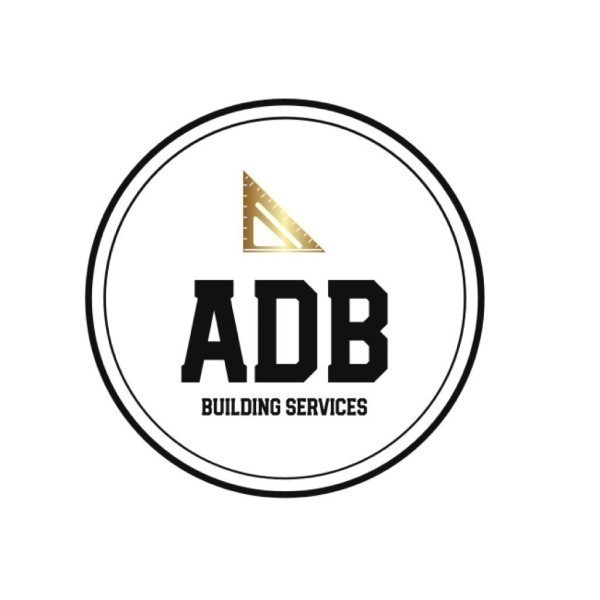Property Refurbishment in Dartmouth
Welcome to MAG Developments SW Ltd, your trusted partner for exceptional building and renovation services in Derriford and thro... read more »
Hysmark Ltd is a trusted UK-based company specializing in high-quality residential construction, maintenance, and refurbishment. With ye... read more »
Welcome to Torquay Builders Ltd, your go-to experts for all building and home improvement services in Torquay... read more »
Welcome to KFBM Contractors, your go-to experts for all your building and renovation needs in Plymouth and across Devon. With a wealth of... read more »
Robski Builders Ltd: Your Trusted Building Experts in Shorton, Devon
Welcome to Robski Builders Ltd, your go-to... read more »
Churchward Electrical Solutions Limited is your go-to tradespeople business nestled in the heart of Chaddlewood, proudly... read more »
Welcome to RB Building and Plumbing Services, your trusted partner for all building and plumbing needs in Great Torrington and across Dev... read more »
Welcome to Advantage Property & Maintenance SW Ltd, your go-to experts for builders, painters & decorators, loft conversions, property ma... read more »
CMT Carpentry & Construction is a distinguished Exmouth-based company offering a comprehensive range of trades, includin... read more »
Welcome to The Fixers, your premier choice for expert tradespeople services in Okehampton and throughout Devon. Specialising in a compreh... read more »
ADB Building Services LTD is a reputable and experienced company based in the charming locale of Churscombe, offering a... read more »
Welcome to Brierley Building Contractors, your truste... read more »
Welcome to A R G Services, your trusted partner for a... read more »
Helix Building Contractors Ltd is yo... read more »
Welcome to Guardsman Property Services, your go-to ex... read more »
BB Traditional Builders Ltd is your... read more »
Head Property Maintenance is your go... read more »
Search Property Refurbishment in places nearby
- Property Refurbishment in Ashburton
- Property Refurbishment in Axminster
- Property Refurbishment in Barnstaple
- Property Refurbishment in Bideford
- Property Refurbishment in Buckfastleigh
- Property Refurbishment in Budleigh Salterton
- Property Refurbishment in Crediton
- Property Refurbishment in Dawlish
- Property Refurbishment in Exeter
- Property Refurbishment in Exmouth
- Property Refurbishment in Great Torrington
- Property Refurbishment in Higher Dunstone
- Property Refurbishment in Holsworthy
- Property Refurbishment in Honiton
- Property Refurbishment in Ilfracombe
- Property Refurbishment in Ivybridge
- Property Refurbishment in Kingsbridge
- Property Refurbishment in Lynton
- Property Refurbishment in Newton Abbot
- Property Refurbishment in Northam
- Property Refurbishment in Okehampton
- Property Refurbishment in Ottery St Mary
- Property Refurbishment in Paignton
- Property Refurbishment in Plymouth
- Property Refurbishment in Salcombe
- Property Refurbishment in Seaton
- Property Refurbishment in Sidmouth
- Property Refurbishment in South Molton
- Property Refurbishment in Tavistock
- Property Refurbishment in Teignmouth
- Property Refurbishment in Tiverton
- Property Refurbishment in Torquay
- Property Refurbishment in Totnes
- Property Refurbishment in Wotton Cross
Understanding Property Refurbishment
Property refurbishment is a comprehensive process that involves renovating and improving a building to enhance its value, functionality, and aesthetic appeal. In Dartmouth, a picturesque town known for its rich history and stunning landscapes, property refurbishment has become increasingly popular. This process not only revitalises old structures but also preserves the town's unique charm.
The Importance of Property Refurbishment
Refurbishing properties in Dartmouth is crucial for several reasons. Firstly, it helps maintain the structural integrity of older buildings, ensuring they remain safe and habitable. Secondly, refurbishment can significantly increase a property's market value, making it a wise investment for homeowners and investors alike. Lastly, it contributes to the town's overall aesthetic, blending modern comforts with historical elegance.
Key Elements of a Successful Refurbishment
A successful property refurbishment project in Dartmouth involves careful planning and execution. Key elements include:
- Assessment: Evaluating the property's current condition to identify areas needing improvement.
- Design: Creating a design plan that respects the property's original architecture while incorporating modern features.
- Budgeting: Establishing a realistic budget that covers all aspects of the refurbishment.
- Execution: Hiring skilled professionals to carry out the refurbishment work efficiently and effectively.
- Compliance: Ensuring all work adheres to local building regulations and standards.
Choosing the Right Professionals
When embarking on a property refurbishment project in Dartmouth, selecting the right professionals is paramount. Experienced architects, builders, and interior designers can transform your vision into reality while ensuring the project stays on track and within budget.
Finding Qualified Experts
To find qualified experts, consider the following steps:
- Research: Look for professionals with a proven track record in property refurbishment.
- Recommendations: Seek recommendations from friends, family, or local community groups.
- Interviews: Conduct interviews to gauge their expertise and compatibility with your project.
- References: Request references from previous clients to assess their satisfaction with the work done.
Working with Local Contractors
Engaging local contractors in Dartmouth offers several advantages. They possess in-depth knowledge of the area's architectural styles and building regulations, ensuring a smoother refurbishment process. Additionally, supporting local businesses contributes to the community's economic growth.
Planning Your Refurbishment Project
Effective planning is the cornerstone of a successful property refurbishment in Dartmouth. A well-thought-out plan helps avoid common pitfalls and ensures the project runs smoothly from start to finish.
Setting Clear Objectives
Before commencing any refurbishment work, it's essential to set clear objectives. Determine what you hope to achieve with the refurbishment, whether it's enhancing the property's value, improving energy efficiency, or updating its appearance.
Creating a Detailed Timeline
A detailed timeline is crucial for keeping the project on track. Break down the refurbishment into phases, assigning specific deadlines for each stage. This approach helps manage expectations and ensures timely completion.
Budgeting for Success
Establishing a realistic budget is vital for a successful refurbishment. Consider all potential costs, including materials, labour, permits, and unexpected expenses. It's wise to set aside a contingency fund to cover any unforeseen issues that may arise during the project.
Designing for Dartmouth's Unique Charm
Dartmouth's unique charm lies in its blend of historical architecture and stunning natural surroundings. When refurbishing a property in this area, it's essential to design with these elements in mind.
Incorporating Historical Features
Preserving historical features is a key aspect of property refurbishment in Dartmouth. Retaining original elements such as exposed beams, stone walls, and period fireplaces adds character and authenticity to the property.
Balancing Modern Comforts with Tradition
While preserving historical features is important, incorporating modern comforts is equally essential. Consider adding energy-efficient windows, underfloor heating, and smart home technology to enhance the property's functionality without compromising its traditional appeal.
Maximising Natural Light
Dartmouth's stunning natural light is one of its most appealing features. Design your refurbishment to maximise natural light by using large windows, skylights, and open-plan layouts. This approach not only enhances the property's aesthetic but also improves energy efficiency.
Understanding Local Building Regulations
Adhering to local building regulations is a critical aspect of property refurbishment in Dartmouth. These regulations ensure that all work is carried out safely and to a high standard, protecting both the property owner and the community.
Obtaining Necessary Permits
Before commencing any refurbishment work, it's essential to obtain the necessary permits from the local council. These permits ensure that the work complies with building codes and regulations, preventing potential legal issues down the line.
Working with Conservation Areas
Many parts of Dartmouth are designated conservation areas, meaning there are additional regulations to protect the town's historical and architectural heritage. When refurbishing a property in these areas, it's crucial to work closely with the local council to ensure compliance with all guidelines.
Ensuring Safety Standards
Safety should always be a top priority during any refurbishment project. Ensure that all work is carried out by qualified professionals and adheres to the latest safety standards. This approach not only protects the workers but also ensures the long-term safety of the property.
Enhancing Energy Efficiency
Improving energy efficiency is a key consideration in modern property refurbishment. In Dartmouth, where environmental sustainability is highly valued, enhancing a property's energy efficiency can significantly reduce its carbon footprint and lower utility bills.
Insulation and Draught Proofing
Proper insulation and draught proofing are essential for maintaining a comfortable indoor environment and reducing energy consumption. Consider upgrading insulation in walls, roofs, and floors, and sealing any gaps around windows and doors.
Installing Energy-Efficient Systems
Installing energy-efficient systems, such as LED lighting, high-efficiency boilers, and solar panels, can greatly enhance a property's energy performance. These systems not only reduce energy consumption but also contribute to long-term cost savings.
Utilising Renewable Energy Sources
Incorporating renewable energy sources, such as solar or wind power, is an excellent way to enhance a property's sustainability. These technologies can significantly reduce reliance on fossil fuels and lower energy costs over time.
Maximising Property Value
One of the primary goals of property refurbishment is to maximise the property's value. In Dartmouth, where property demand is high, a well-executed refurbishment can significantly increase a property's market appeal and selling price.
Focusing on Key Areas
When refurbishing a property, focus on key areas that offer the greatest return on investment. Kitchens and bathrooms are particularly important, as they are often the first areas potential buyers assess. Modernising these spaces can greatly enhance the property's appeal.
Enhancing Curb Appeal
Curb appeal plays a crucial role in attracting potential buyers. Consider improving the property's exterior by repainting, landscaping, and repairing any visible damage. A well-maintained exterior creates a positive first impression and can significantly boost the property's value.
Adding Functional Space
Adding functional space, such as an additional bedroom or home office, can greatly increase a property's value. Consider converting unused spaces, such as attics or basements, into functional living areas to maximise the property's potential.
Preserving Dartmouth's Heritage
Preserving Dartmouth's rich heritage is a vital aspect of property refurbishment. By maintaining the town's historical architecture and cultural significance, property owners contribute to the preservation of its unique identity.
Respecting Architectural Styles
When refurbishing a property in Dartmouth, it's important to respect the original architectural style. This approach not only preserves the property's historical significance but also ensures it blends seamlessly with the surrounding area.
Collaborating with Heritage Organisations
Collaborating with heritage organisations can provide valuable insights and guidance during the refurbishment process. These organisations can offer advice on preserving historical features and ensuring compliance with conservation guidelines.
Promoting Sustainable Practices
Promoting sustainable practices during refurbishment is essential for preserving Dartmouth's natural beauty. Consider using eco-friendly materials, minimising waste, and incorporating energy-efficient systems to reduce the environmental impact of the refurbishment.
Frequently Asked Questions
- What is property refurbishment? Property refurbishment involves renovating and improving a building to enhance its value, functionality, and aesthetic appeal.
- Why is property refurbishment important in Dartmouth? It helps maintain structural integrity, increases market value, and preserves the town's charm.
- How do I choose the right professionals for my refurbishment project? Research, seek recommendations, conduct interviews, and request references to find qualified experts.
- What are the key elements of a successful refurbishment? Assessment, design, budgeting, execution, and compliance are crucial for success.
- How can I enhance energy efficiency during refurbishment? Improve insulation, install energy-efficient systems, and utilise renewable energy sources.
- What should I consider when refurbishing a property in a conservation area? Work closely with the local council to ensure compliance with all guidelines and regulations.
Send a message
















